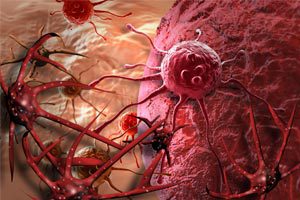
Researchers looking to explain the increased risk of colorectal cancer in individuals who have had gastric bypass surgery discovered that a new generation of weight-loss drugs may pose a similar risk. A research team at Mt. Sinai Hospital in Toronto looked at the action of bile acids and hormones residing in the gut. These chemicals […]

New Generation of Weight-Loss Drugs Increase Colon Cancer
A research team at Mt. Sinai Hospital in Toronto looked at the action of bile acids and hormones residing in the gut. These chemicals aid digestion, and some of them, including glucagon-like peptide-2 (GLP-2), also work as growth factor hormones, stimulating cell division in the intestines, Medical Daily reports. The researchers conducted an experiment using mice to explore the effects on the mice of increasing the hormone, or eliminating it.
They demonstrated that increasing GLP-1 activity increased the incidence of intestinal tumors in mice. Eliminating GLP-1 action by deleting the GLP-1 receptor in mice decreased the number of tumors, according to Medical Daily. “Our paper now raises the possibility that GLP-1 is an intestinal growth factor,” said Dr. Daniel Drucker, senior author and a professor at the University of Toronto. The paper was published in the journal Cell Metabolism.
Pharmacological scientists are developing drugs that elevate levels of GLP-1, GLP-2, and bile acids to treat diabetes and other metabolic diseases. Targeting the glucagon receptor, these experimental drugs would lead to increased levels of GLP-1, GLP-2, and bile acids circulating within the body. Though only animal studies have been conducted on these drugs thus far, researchers wonder what effect they would have in humans, according to Medical Daily. Drucker noted that no studies “have linked long-term use of GLP-1-based drugs with increased rates of cancer,” and he said more research is needed. But, he added, “patients with a previous history, or increased risk, of colon cancer may not be ideally suited for these therapies.”


